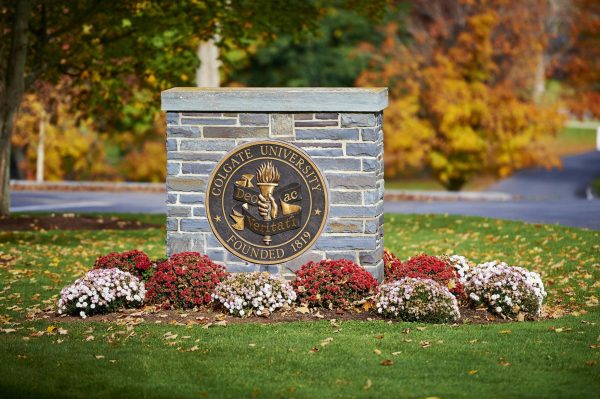Colgate Must Do More To Recognize Indigenous History and Struggles
Underneath all of the United States’ power and wealth are the sacrifices made by those who believed that the arc of history would inevitably bend toward progress and justice. Their undying hope and buy-in allowed the American experiment to succeed: I am referring to the Indigenous people of this country — those who lost their own future so that we could build ours. The hardship and suffering they endured, in exchange for promises that we rarely kept, is worthy of more than just recognition in our AP American History classes. We may not like the inconveniences that come with the truth, but we sincerely owe everything to the Indigenous people that we cheated.
Brutally forced off of their ancestral lands, the Native American tribes that originally lived in the United States entered different agreements with our federal government to guarantee the survival of their cultural identity. Often, the United States would manipulate and deceive these tribes into accepting unfair terms and conditions. Sometimes, the tribes which resisted would be coerced into acceptance at gunpoint. And, as always, the United States would simply renege on any treaties that became too inconvenient to follow. There exists a palpable historical pattern that our words are meaningless and that our treaties were worth less than the paper they were printed on.
But we are not slaves to our history. There is nothing permanent about the way the world is ordered today. We can begin anew; we must set ourselves on a new path — one which allows for healing and reconciliation. Committing to this path means achieving national greatness in its most authentic form; it would translate into justice and fortify the integrity of our most noble ideals. Nothing will be easy about this undertaking, and it demands something from everyone, including Colgate students.
How many Colgate students even know that our school was built on Indigenous land? Among them, who knows of the Onyota’a:ká people, those who traditionally inhabited the land that Colgate is situated upon? Why did it take me nearly two years at Colgate before I underwent a land acknowledgement? (Shoutout to professor Gonzalo Guzman in the education department for having one in his course.)
Colgate as an institution has a moral obligation to help correct the collective wrongs of the past, and it can do so by leveraging the massive amount of resources at its disposal to further the understanding of Indigenous culture, history and current challenges facing the community. Namely, we could invest more in our academic offerings regarding the study of Indigenous peoples. This could be accomplished by simply endowing more professorships for Colgate’s Native American studies program. Funding a new academic institute at Colgate dedicated to the study of Indigenous peoples and issues relevant to their communities would also offer a forum for student-led scholarly research, providing more opportunities for engagement.
Aside from investing more resources, Colgate could also consider reforming the core curriculum to mandate focus on Indigenous studies. Relevant to both the ancient and modern world, there is unique social value to studying Indigenous history and wisdom. In addition to being intellectually productive, it instills a unique sense of appreciation for all that we often take for granted as a product of our own accomplishments. A light would be shone on the truth: That Western American canon was shaped not just by Locke and Montesquieu, but also Indigenous erudition and insight. Understanding this connection, and the rich history and knowledge accumulated by Indigenous experiences, would serve the academic mission of Colgate well.
The United States’ sins are plenty and weigh a great deal, and the courage necessary to correct them is in short supply. Colgate has a role to play in this fight, but it always starts with the individual. We should search deeply within ourselves to find the will to fight, too, because if we fail, then our flawed past will continue to claim the future.












